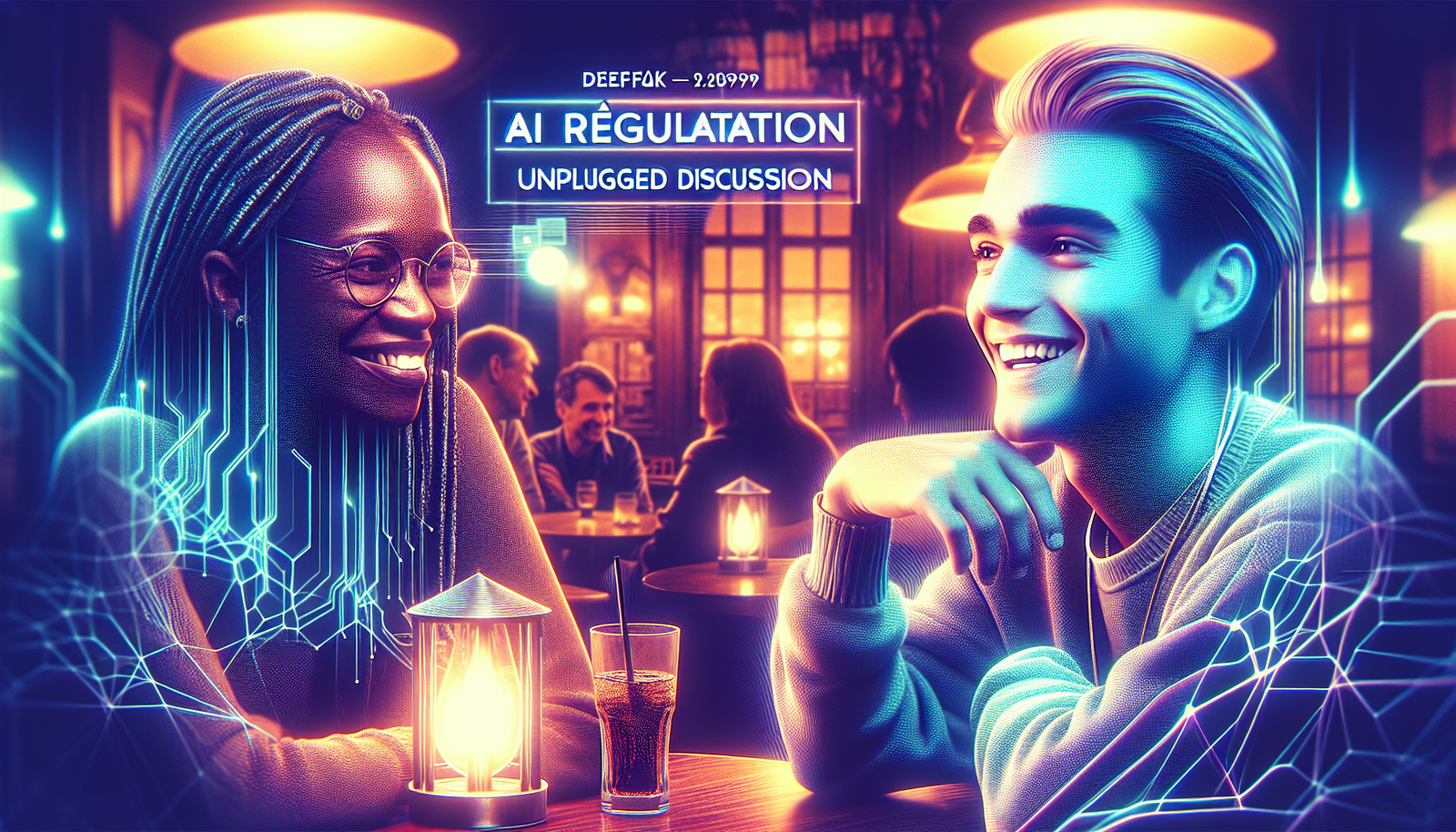Emmanuel Macron, President of the French Republic, stands out for his desire to address contemporary challenges in digital technologies. A recent event has captivated attention: a spectacular *deepfake* featuring the President alongside Taylor Swift. This video raises important questions about AI regulation and its impact on society. Digital manipulation, once relegated to marginal spheres, is becoming a major issue. At the heart of this debate, *ethics and truth* must be a prominent place in public discussions.
Emmanuel Macron and his experience with deepfakes
In a recent video, Emmanuel Macron shared his personal experience through a deepfake depicting him with singer Taylor Swift. This initiative aims to raise public awareness about the issues surrounding artificial intelligence regulation. The French president highlights the potential dangers of deepfakes, which can manipulate the image of public figures and lead to disastrous consequences.
The phenomenon of deepfakes
Deepfakes, fueled by technological advances in artificial intelligence, create misleading videos that are sometimes humorous and sometimes concerning. Their implications go far beyond simple entertainment. Recent cases like those of France 24 and Donald Trump testify to the growing use of these technologies for disinformation. Videos using celebrity faces can be found in falsely interpreted contexts, provoking controversies.
The implications of disinformation
The spread of misleading content raises major concerns, particularly in the political sphere. The pornographic deepfake of Taylor Swift has sparked a heated debate on the moderation of online content. This situation underscores the urgency of implementing effective regulation measures to combat this phenomenon. Experts consulted agree that disinformation can undermine public trust in institutions and personalities.
Towards AI regulation
The need for suitable regulation is becoming increasingly pressing. Emmanuel Macron calls for legislation aimed at protecting individuals against potential abuses of digital manipulation technologies. In Europe, the AI Act represents a significant step in this direction, seeking to establish a solid legal framework. The compromise between technological autonomy and control is a central issue during this transition.
The voices of artists against deepfakes
The situation of artists becomes concerning when their images are manipulated for commercial or degrading purposes. Recently, Scarlett Johansson has filed a lawsuit against an AI that used her image without permission. This dynamic illustrates the legal challenges that content creators must face in the digital age. The security of image rights and artistic creations requires sustained attention.
Conclusion of the debates on AI
Debates around deepfakes and their regulation are just beginning. Society must mobilize to understand the implications of these technologies, both ethically and morally. The long-awaited legislative response, as well as the evolution of mindsets in face of new digital realities, will determine the future of artificial intelligence. The diagnosis made by Emmanuel Macron aims to awaken all actors in society to this crucial issue.
For additional information on these troubling subjects, read the articles on the dangers of unregulated artificial intelligence here and on advances in artificial intelligence here. You will also find information on disputes regarding the use of AI-generated images here.
FAQ on Emmanuel Macron’s experience with a deepfake and the regulation of artificial intelligence
What is the origin of the deepfake video featuring Emmanuel Macron and Taylor Swift?
The deepfake video was created for humorous purposes, but it raises serious questions about the use of AI in creating misleading content.
How did Emmanuel Macron react to the deepfake video depicting him with Taylor Swift?
Macron expressed his concerns regarding the ethical and political implications of such deepfakes, emphasizing the need for strict regulation of artificial intelligence.
Why did this deepfake video concern Emmanuel Macron regarding AI regulation?
He believes that deepfakes can damage public trust and security, making it essential to establish clear rules regarding the use of AI.
What AI regulation measures did Emmanuel Macron mention following this video?
Macron suggested the establishment of international laws to govern the use of deepfake technologies and ensure protection for individuals against disinformation.
Do deepfakes have legal consequences for the individuals depicted, such as Emmanuel Macron?
Yes, individuals can file lawsuits for violation of their image or privacy rights, but current legislation is still limited and needs updating to address the new challenges posed by deepfakes.
Does this impact discussions on online disinformation?
Absolutely, this situation strengthens the debate on disinformation and the need for greater responsibility from digital platforms in the spread of falsified content.
What ethical concerns about deepfakes did Emmanuel Macron raise?
Concerns include manipulation of information, potential violation of privacy, and erosion of trust in media and institutions.
What is the overall message that Emmanuel Macron wants to convey regarding AI and deepfakes?
He encourages a global dialogue to establish ethical and regulatory standards to prevent AI from becoming a tool of deception or manipulation to the detriment of individual rights.






